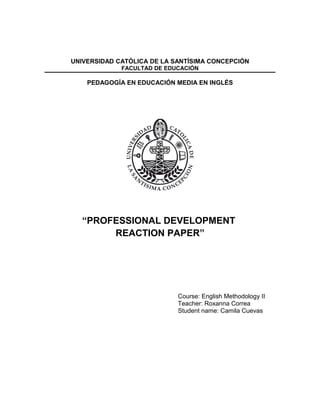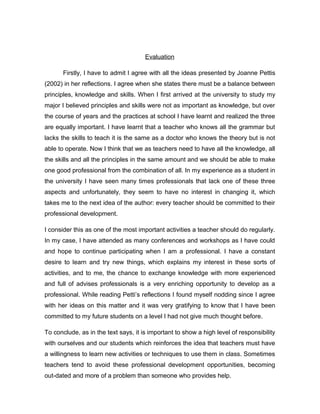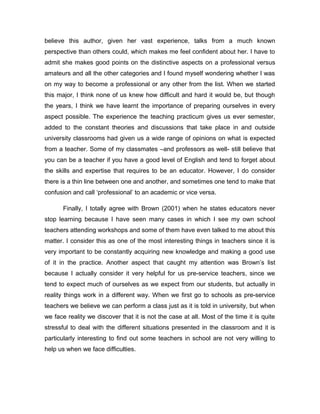The document discusses three articles about teacher professional development. The first article by Joanne Pettis argues that teachers must regularly reflect on developing their professional competence through balancing principles, knowledge, and skills. The second article by Elizabeth Taylor explains how teachers can conduct classroom research by following steps such as informal conversations with colleagues and deciding whether to work individually or in groups. The third article by Penny Ur defines what makes a teacher professional through their commitment to ongoing learning and the context in which they apply their skills. The document also includes an evaluation section where the student agrees with the importance of teacher professional development and finds the article on classroom research particularly useful for their career.







